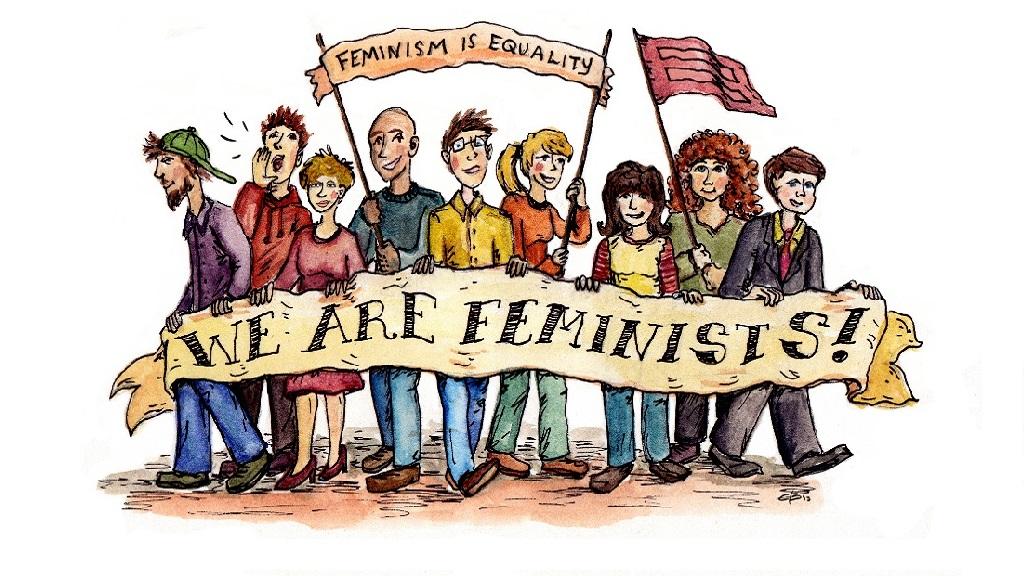“Men most often feel the effects of our patriarchal society as it impacts the women closest to them: their sisters, mothers and friends. Feeling disconnected from the movement, some men may have trouble relating to feminism. While this isn’t justifiable, it is understandable.”
Three years ago I expressed this sentiment in a Reporter views article aimed at convincing women to proudly accept the title of feminist. This time around, I’m calling out the men.
While it’s true that most men are not quick to accept the label of feminist – a Huffington Post/YouGov poll revealed that only 16 percent of men ascribe this word to themselves—I believe that the majority of men do, in fact, support feminism’s main belief. In my last article, I worded this belief as: “men and women are moral, political and social equals.” Although I would now include “and people of all genders” in this statement, the point still stands. With a similar definition of feminism, the Huffington Post poll asked this question: “Do you believe that men and women should be social, political, and economic equals?” Out of 1,000 people surveyed, 83 percent responded “yes” to this question. With only 23 percent of women in the poll identifying as a feminist, it’s clear that both genders had significantly more agreeable view of feminism once the dirty f-word was removed.
When you get down to the foundation of what feminism means, both men and women are clear supporters. By avoiding association with the label of feminism, men buy into the stereotype of feminists as radical, head-shaven, man-haters and give others permission to do the same. However, by accepting the role of feminist and helping to de-bunk the negative stereotype, men can help create a more equal society, a job too big for just one gender to do. Moreover, men should be willing to support a movement that aims at breaking traditional roles that negatively impact their gender as well.
Thanks to the work of second wave feminists — think Betty Friedan and Gloria Steinem — women’s role in the workforce has increased dramatically. According to the Bureau of Labor statistics, 33.9 percent of women were a part of the labor force in 1950; by 1998, that number jumped to nearly 60 percent. Although true equality is still muddied by concerns of unequal pay, promotion discrimination and disparate home responsibilities —issues that current feminists hope to eradicate — it’s clear that second wave feminism gave women greater freedom to hold their own in the workforce.
While the second wave moment focused on breaking notion that women’s place was always in the home, it did little to address how traditional gender roles negatively impacted men. Men who act as primary caregivers still often face criticism from on-lookers who are wary of their choice to stay at home. Moreover, a father’s choice to stay at home isn’t just dictated by social rules, but by corporate policy as well; most U.S. companies offer more time off for maternity leave than paternity leave. And men who choose to take time off for childcare often lose respect from co-workers and superiors who perceive this as a disloyalty to the company. In her book “Lean In” Sharon Sandburg, chief operating officer of Facebook, offers this compelling conclusion: “Gender specific expectations remain self-fulfilling. The belief that mothers are more committed to family than to work penalizes women because employers assume they won’t live up to expectations…The reverse is true for men, who are expected to put their career first.…[We] send them a clear message that personal achievements are insufficient for them to be valued.”
When you strip away the negative misconceptions of feminism, you’re left with a fundamental belief that few would argue with: equality. True equality, however, requires support from all genders and a significant cultural shift that can’t come from only half the population. Garnering support for equality will be the first step in creating a more equal world, both at work and at home.







